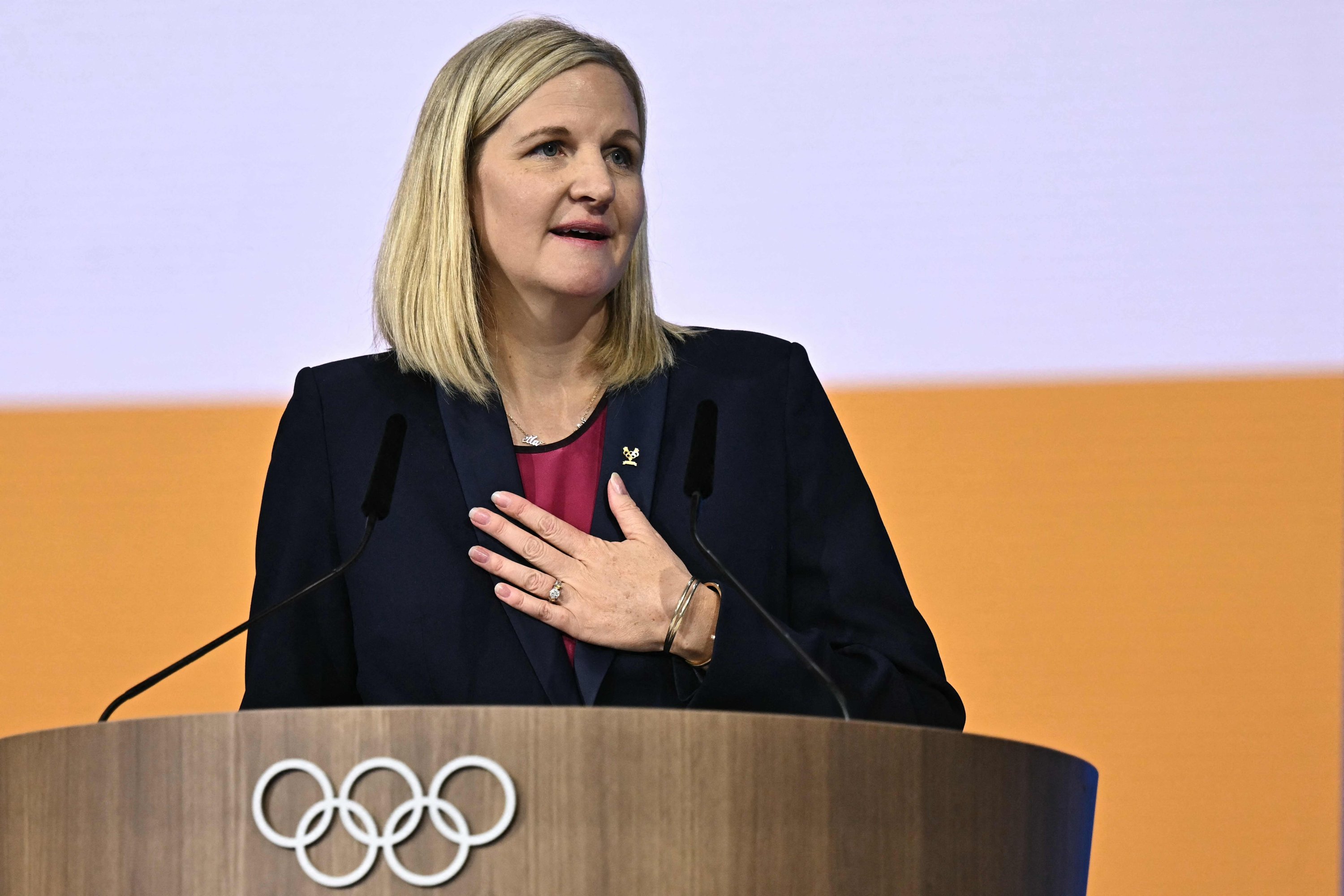© Turkuvaz Haberleşme ve Yayıncılık 2026
Kirsty Coventry made history on Thursday, becoming the first woman and first African to be elected president of the International Olympic Committee (IOC), securing one of the most coveted positions in global sports.
The Zimbabwean sports minister and two-time Olympic gold medalist in swimming won the presidency with a stunning first-round victory in a seven-candidate race after nearly 100 IOC members cast their votes.
At 41, Coventry will serve an eight-year term, taking over from outgoing president Thomas Bach, who reached the maximum 12 years in office.
"I will make all of you very, very proud and hopefully extremely confident in the decision you have taken," Coventry said in her acceptance speech. “Now we have some work together.”
Coventry’s win is seen as a victory for Bach, who has long championed her as his successor.

He did not vote, but his support was evident.
Her rival, Juan Antonio Samaranch, received 28 votes, while other contenders – Sebastian Coe, Johan Eliasch, David Lappartient, Morinari Watanabe, and Prince Feisal al Hussein – failed to challenge Coventry’s momentum.
Samaranch, who had hoped to follow in his father’s footsteps, fell short in his bid to lead the IOC.
Coe, a two-time Olympic gold medalist and former head of London 2012, garnered just eight votes.
Coventry’s election came after a highly competitive and unpredictable campaign, with IOC members expected to take several rounds to choose a winner.
But Coventry secured the necessary majority in the first round, cementing her place as the 10th president in the IOC’s 131-year history.
As president, Coventry will face key challenges.
One of her first tasks will be navigating the political and sporting landscape ahead of the 2028 Summer Games in Los Angeles.
Diplomacy, including relations with U.S. President Donald Trump, will be crucial in the coming years.
Coventry’s IOC will also need to select a host for the 2036 Summer Games, with strong bids expected from India and the Middle East.
During her campaign, Coventry’s manifesto emphasized continuity with Bach’s leadership, focusing on preserving the IOC’s stability.
In contrast, some of her rivals – particularly Coe and Samaranch – offered specific proposals to benefit athletes, such as relaxing commercial rules and increasing athlete control over Olympic footage.
Bach, whose presidency has been marked by a focus on gender parity and financial security, leaves behind a legacy of progress, including equal quotas for men and women athletes at the 2024 Paris Olympics.
Under his leadership, the IOC is poised to earn more than $8 billion in revenue through the 2028 Olympics, with a strong slate of future hosts already secured.
Coventry’s victory is also a triumph for women in sports leadership. As an IOC member since 2013, she has long been an advocate for gender equality, and her election only further strengthens Bach’s legacy of promoting women within the IOC.
Coventry joins a growing cohort of influential female leaders in global sports, including seven women now serving on the IOC executive board.
Looking ahead, Coventry’s leadership will play a pivotal role in shaping the future of the Olympic Games.
With her experience as a world-class athlete and a prominent sports administrator, she is well-positioned to lead the IOC into a new era of growth and inclusivity.
